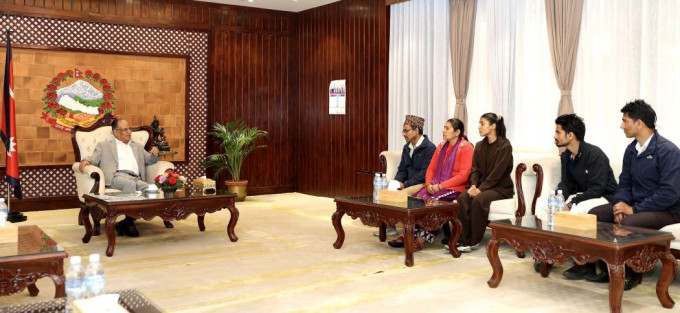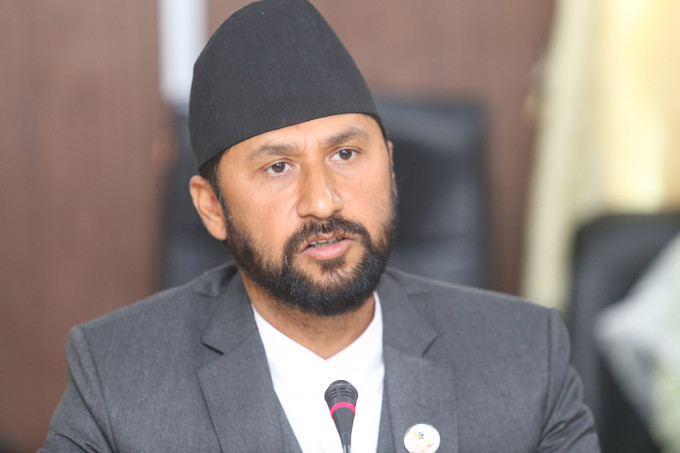U.N. High Commissioner for Human Rights Michelle Bachelet said Monday she will not seek a new four-year term after the end of the current one that has been overshadowed by criticism of her response to China’s treatment of Uyghurs and other Muslim minorities in western Xinjiang.
Bachelet used her opening address to the summer session of the U.N.-backed Human Rights Council to say that her comments on Monday “will be the last which I brief” the 47-member-state body. Rights office spokeswoman Ravina Shamdasani confirmed that meant that Bachelet, a former president of Chile, would not be seeking a new term after the current one ends on Aug. 31.
U.N. Secretary-General Antonio Guterres, who chooses the U.N. rights chief, recently affirmed his support for Bachelet after she came in for criticism from the United States and others for allegedly not doing enough to raise concerns about or look into rights abuses in Xinjiang during her trip to China last month, when she spoke with President Xi Jinping and other top officials.
Bachelet, 70, took up the job in September 2018 and immediately expressed hopes of visiting China and viewing the rights situation in Xinjiang for herself.
Her office repeatedly said she and staffers were working to create the right conditions for the trip, which ultimately took place last month. But critics said she hasn’t spoken out enough, and during the visit didn’t press authorities enough. She insisted that her trip was not an “investigation” and emphasized that she had opened a channel of communication with top Chinese authorities.
A veteran politician who had rubbed elbows with leaders worldwide while Chile’s president, and the daughter of a man who was tortured under a rightist regime in the country, Bachelet was widely seen as a politically savvy choice who would bring in a less vocal and more cooperative approach to the office than her outspoken predecessor Zeid Ra’ad al-Hussein — a Jordanian prince.
After a brief news conference in China as her trip ended on May 28, Bachelet used Monday’s speech to the rights council to provide new details about her conversations with authorities there. She said she raised concerns about arbitrary detention and “patterns of abuse” against Uyghurs and other mostly Muslim minorities in Xinjiang.
She said her long-awaited report on the rights situation in Xinjiang — where some critics say Uyghurs have been subject to genocide — is being “updated” and will be shared with Beijing authorities “for factual comments” before it is published. China has denied such accusations and has defended its “vocational education and training centers” that critics have called detention centers.
Last week, Human Rights Watch relayed a statement from over 230 activist groups representing people from Xinjiang, Tibet, Hong Kong and other places in China calling on Bachelet to step down. In it, the groups accused her of having “whitewashed the Chinese government’s human rights atrocities” during her visit.
Bachelet had previously defended her trip, during which she spoke directly with President Xi, as a chance to have direct talks with senior Chinese leaders and pave the way for more regular interactions to support China in fulfilling its obligations under international human rights law.
On Monday, she said she had raised “human rights violations in the context of China’s policies for countering terrorism and safeguarding national security” as well as protections for ethnic minorities, women and human rights “in the digital space” and business.
In her catch-all address, Bachelet laid out an array of concerns including inflation, growing food insecurity, worries about the environment and country-specific concerns during her address.
She expressed concerns about a possibly severe outbreak of COVID-19 in North Korea if a vaccination campaign is not rolled out there, and called for the international community to “relax sanctions” to allow international and COVID-19 assistance to reach people in the country. The World Health Organization has lamented that Pyongyang hasn’t provided enough information about the outbreak there.
On Russia, Bachelet said arbitrary arrests of a “large number” of protesters against President Vladimir Putin’s war in Ukraine was “worrying” and she expressed concern about an increase of censorship and restrictions on independent media in Russia.
READ ALSO:









